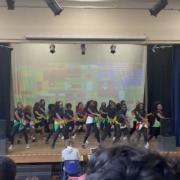
This Sunday 21st March is World Poetry Day, a worldwide event established by UNESCO in 1999. It is a day to recognise poets and poetry, to support cultural and linguistic diversity - particularly endangered languages - through poetic expression and to create a space for them to be heard and discovered.
Poetry is everywhere, not just found in the compulsory unit of English GCSE. It can be found in the most common of things like music and the conversations with hold with loved ones, arguably even the advertisements that surround us daily. The way poems communicate such intense emotions and universal thoughts within a condensed number of words and lines, the way a single line can prompt an entire change: poetry is important and beautiful.
Ava Moore, an English A-Level student sees poetry as “more significant and influential than ever.”
“I think many young people rely on escapism and romanticism to find enjoyment in daily life, especially with the rise of mental health issues in the newer generations and the repetition of life in quarantine. I love how poetry can take something mundane and make it beautiful. It’s opened the world up to me in a new light.”
“Now, I don’t just see two people kissing on the side of the road in the rain. I see love in all its violent and tender glory; the way poetry has given it to me.”
Around London, World Poetry Day will be celebrated through projected poems onto landmarks by the award-winning poet Christina Reihill. The poem ‘Presence’ will draw upon the collective experience of Covid-19, demonstrating the unifying and therapeutic power poetry can have.
But there are other, smaller ways to celebrate the international day this Sunday. You could read a poem – visit the library to find an anthology or dig through the possible stash you have a home. Maybe discuss poetry or poems that mean something to you in class or among friends.
You could even write your own poem! The University of Manchester is holding a Micropoetry competition: https://www.manchester.ac.uk/discover/news/creative-manchester-poetry-competition-2021-themed-around-space/ The theme is space to celebrate the Geological Society’s ‘Year of Space’ also.
The Epic of Gilgamesh is considered the earliest documented work of poetry, and I end on a favourite quote of mine from it: “Gilgamesh was called a god and a man; Enkidu was an animal and a man. It is the story of their becoming human together.”



























